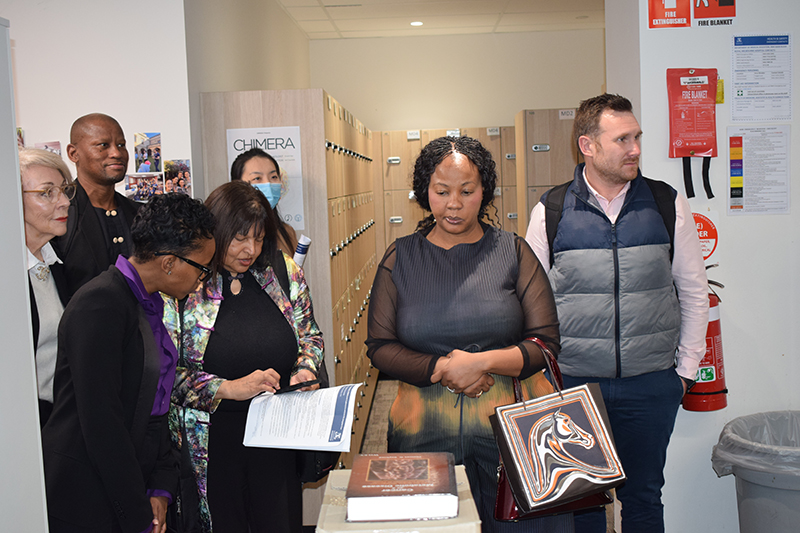A North-West University (NWU) delegation visited the University of Melbourne, Australia’s highest-ranked institution, on 20 November to benchmark international best practices and explore avenues for future collaboration.
The visit comes as the NWU accelerates plans to establish the Desmond Tutu School of Medicine, scheduled to welcome its first cohort in 2028, and advances discussions to launch a School of Mining and Mining Engineering.
The University of Melbourne, ranked 19th in the world, hosted the delegation at its Parkville Campus, where engagements focused on medical education, engineering, sustainability and institutional partnerships.
The NWU visitors toured the Royal Melbourne Hospital Clinical School, engaging with senior medical education leaders, including Prof Peter Morley and associate professor Louisa Ng, to understand curriculum delivery, clinical training models and student support systems
The discussions were particularly relevant for the NWU team members from the soon-to-be-established Desmond Tutu School of Medicine, led by project head Prof Binu Luke.
“This visit offered us valuable insight into how a world-class medical school integrates clinical training, research and community service,” Prof Luke said. “As we establish the Desmond Tutu School of Medicine, these lessons will help us build a programme that meets the healthcare needs of our communities while aligning with global standards.”
In-depth exchange on mining and minerals processing
Parallel sessions were held with academics from the Department of Chemical Engineering at the University of Melbourne’s Faculty of Engineering and Information Technology, where the NWU’s representatives explored potential collaboration in mining engineering, minerals processing and sustainable resource innovation.
Dr Sihe Nhleko, director of the NWU’s Centre for Sustainable Mining, participated in these engagements, which are aligned with the NWU’s ongoing work to establish the School of Mining and Mining Engineering.
The meeting offered an in-depth exchange on digital innovation in mining, minerals processing and sustainability, and explored partnership opportunities such as joint research, guest lecturing, co-supervision of postgraduate students, external examination roles, academic exchanges and collaborative grant applications.
Areas of strategic alignment emerged in machine learning applications for mining, circular economy models, tailings reprocessing, urban mining and the recovery of critical raw minerals from secondary sources.
“Our discussions highlighted clear synergies in digital mining and sustainability,” Dr Nhleko said. “The University of Melbourne’s strengths complement the work of the Centre for Sustainable Mining, and this creates a solid platform to develop collaborative research and training that advance responsible mining practices.”
Sustainability firmly on the agenda
The host university’s sustainability team also met with NWU executives to discuss environmental management, institutional sustainability planning and pathways towards embedding sustainability across teaching, research, campus operations and community impact.
Bibi Bouwman, director for sustainability and community impact at the NWU, said: “The exchange allowed us to reflect on how universities can shape sustainability in meaningful ways. Learning from Melbourne’s integrated approach strengthens our commitment to building a culture where environmental responsibility and community impact guide long-term institutional decisions.”
The NWU delegation, headed by Ntsikie Kote-Nkomo, executive director for strategy and strategic projects, also included senior academic and professional staff from health and natural sciences. The visit marked an important step in strengthening the NWU’s international partnerships, expanding its academic footprint, and benchmarking its new professional schools against leading global institutions.

The NWU delegation also went on a tour through the Royal Melbourne Hospital Clinical School.
